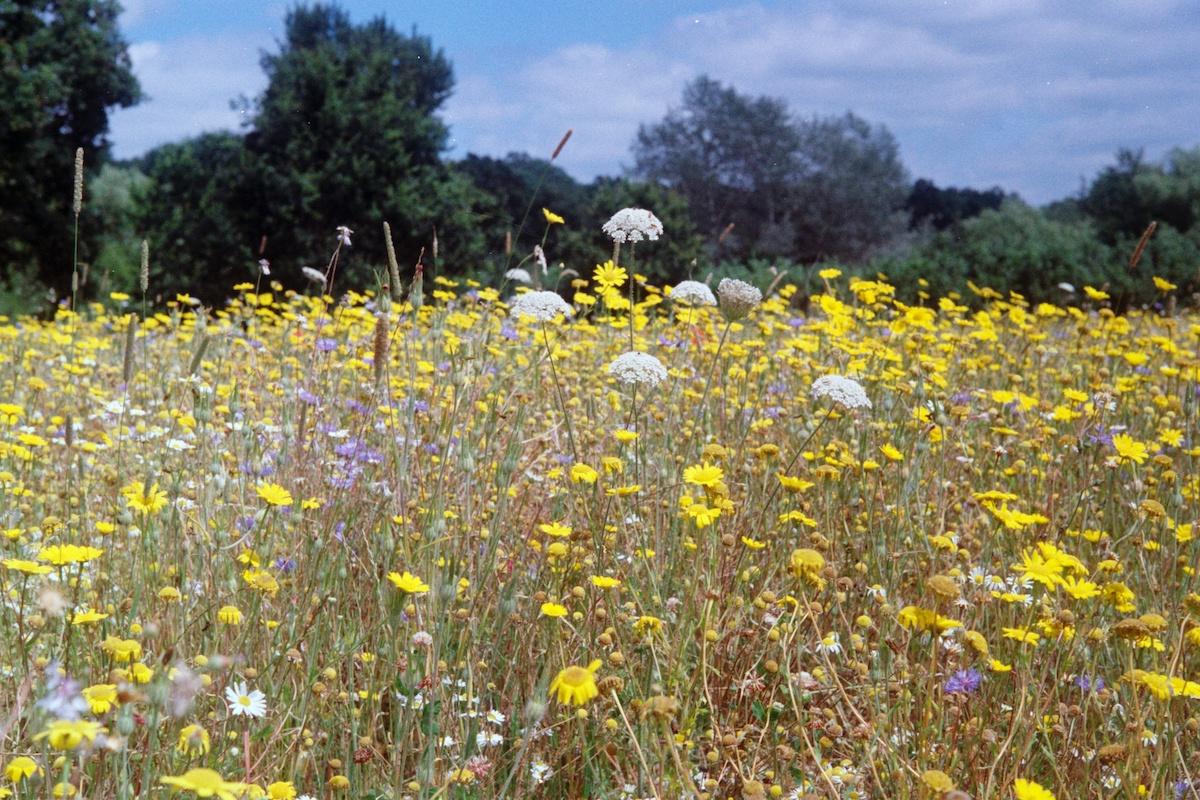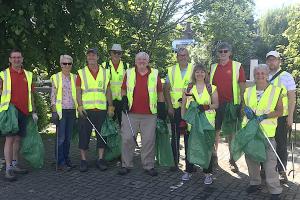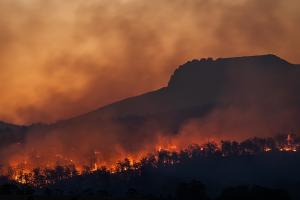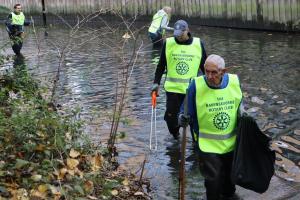Biodiversity
Protecting our natural world

Biodiversity is a term used to describe the enormous variety of life on Earth, and refers to every living thing; including plants, bacteria, animals, and humans.
Pollution, climate change, and population growth are all threats to biodiversity. These threats have caused an unprecedented rise in the rate of species extinction. Some scientists estimate that half of all species on Earth could be wiped out within the next century.
We rely on biodiversity to survive. We need fresh water, clean air, and plants and animals for food. We need a natural world that is complex, resilient, thriving and full of variety. In other words, we need biodiverstity.
Supporting Our Pollinators
Wild flower meadows are one of the rarest habitats in the UK as we have lost 97% of our wild flower meadows since the 1930s (according to the Royal Botanical Gardens at Kew). When wild flower meadows vanish so do pollinators, as well as other insects, and animals that eat insects, such as birds, hedgehogs and bats.
The loss of wild flower meadows, the use of mono-culture with large fields of non-pollinating flowers and the increasing use of chemicals are causing a decline in our pollinating insects.
You know there is a decline in all insects. When was the last time you had to clear insect splats from your car windshield? Where have all the houseflies gone? A decline in insects results in a decline in bird numbers and in turn biodiversity suffers.
Communities and organisations are working together to return wild flower meadows to the UK landscape. Many parks and farms are now setting aside areas where wild flowers can survive. Watch this excellent video by Rotary Cyprus on their Pollinator Project - remember, one in three mouthfuls of food we eat relies on pollination.
Rotary clubs may wish to work with schools and councils to plant wild flowers and pollinator gardens to help our bees and other pollinators.
Clubs can also adopt a beehive and be an advocate for pollinators on World Bee Day (20th May) each year.
The Billion Seeds Challenge
Rotary is supporting the Billion Seed Challenge to plant wildflowers to brighten up our parks, verges and playgrounds with incredible splashes of colour.
This is our chance for businesses, charities, faith and community groups to show we are uniting to protect and brighten up our local environment.
The Rotary Cub of Minster took part in the Billion Seed Challenge during the COP26 conference, and were joined by Steve Brown, paralympian, broadcaster and Rotary GB&I Ambassador. A number of local groups and parish councilors also helped with the challenge.
Download: Tips For Planting Wildflower Seeds
Tree Planting
The challenge of one tree per member, meaning a global target of 1.2 million trees, was set by the 2017/18 Rotary International President, Ian Riseley, who believed that protecting the environment and curbing climate change is essential to Rotary’s goal of sustainable service.
This is a worldwide plan to help replenish forests and, as always, Rotary is getting involved in a hands-on way through physically putting these trees safely into the ground. Rotary is committed to helping the environment with many humanitarian projects carefully designed to work alongside nature.
The Rotary Club of Sittingbourne Invicta planted over 400 trees in Milton Creek Country Park, Sittingbourne over two days. A mixture of trees were provided by The Woodland Trust. The club also previously planted trees in Cromer's Wood in support of Kent Wildlife Trust.
The Rotary Club of Beckenham has also planted "trees of friendship".
Free Trees
The Woodland Trust give away trees for community projects. Applications for planting in November have to be in by early September and for March by early January. Packs come in 30s, 60s, 105s or 420s. Try to involve schools and community groups in the planting. For sites contact your Local Authority Parks Department.
For free trees for schools and communities, please vist The Woodland Trust website.
The Queen's Green Canopy
The Queen’s Green Canopy (QGC) is a unique tree planting initiative created to mark Her Majesty’s Platinum Jubilee in 2022 which invites people from across the United Kingdom to “Plant a Tree for the Jubilee.”
Everyone from individuals to community groups, in villages and cities, schools and corporates will be encouraged to play their part to enhance our environment by planting trees from October, when the tree planting season begins, through to the end of the Jubilee year in 2022.
For the Queen's Diamond Jubilee - support The Queen's Green Canopy. Tree planting commences October 2021.
Woodland Management

The Rotary Club of Sittingbourne Invicta has undertaken coppicing work in woods near Sittingbourne in support of the Kent Wildlife Trust.
Coppicing is a woodland management technique of repeatedly felling trees at the base (or stool), and allowing them to regrow, in order to provide a sustainable supply of timber. Smaller branches are then left to provide an habitat for wildlife.
Building Ponds
Creating ponds adds a rich diversity of habitat, and as a result the wildlife that they support.
A pond can be truly like an oasis in the desert. Animals and birds flock to it for protection and sustenance and provide all manner of wildlife watching and studying opportunities.
Honey bees drink from garden ponds. Amphibians like frogs, toads and newts are reliant on good quality ponds. Bats can often be seen flying over ponds to feed on insect life. The dragonfly lays its eggs in ponds and does an amazing job of helping humans by controlling populations of pest insects, especially those that bug us most, such as mosquitoes and biting flies.
The Rotary Club of Beckenham is involved in the creation of ponds to help animal and plants biodiversity.
(Main photo by Gemma Evans on Unsplash)
Related pages...
Environment for Members
more Environmental Grant opportunities for Members

The Weird Fish Lady Blog
more Rotarian Gloria Barnett talks about all things environmental

50 Leading Clubs Supporting the Environment
more Clubs within Rotary South East that are Supporting The Environment

Reducing Our Carbon Footprint
more Reducing our dependency on fossil fuels

Recycling
more Avoiding landfill and reusing materials to make new products

Tackling Litter
more Helping to clean up our communities

Climate Change
more Global warming causes and effects

Protecting The Marine Environment
more Facing three huge threats: overfishing, pollution & climate change
back to page above this...

Protecting The Environment
back Rotary members are tackling environmental issues the way they always do: coming up with projects, using their connections to change policy and planning for the future.